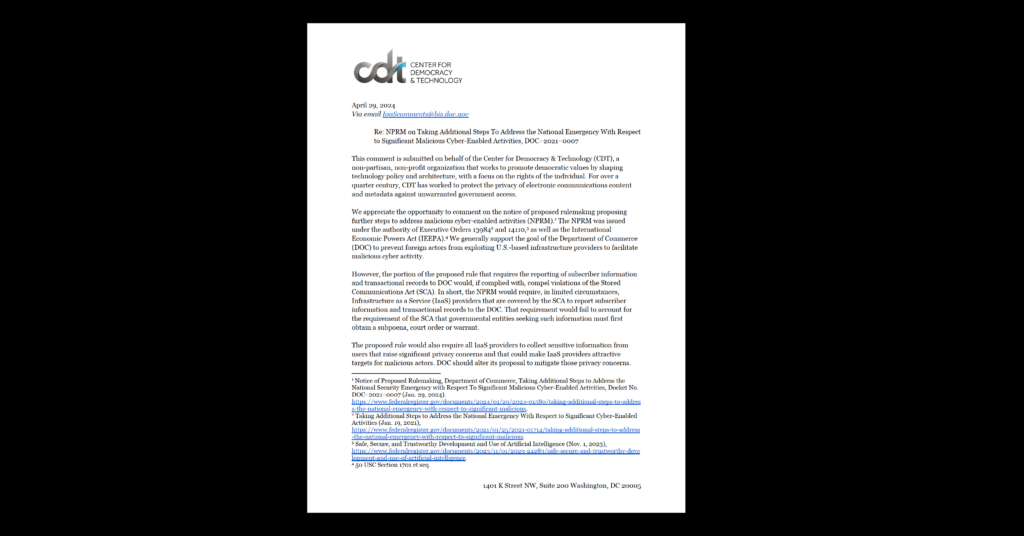Gross and Inappropriate Expansion of Federal Power to Regulate Speech
Contact:
Brock N. Meeks, CDT
(202) 637-9800 x 114
(703) 989-3547 (cell)
Washington – The Center for Democracy & Technology Tuesday, May 20, will hold a call-in media briefing to discuss the how the indictment by the U.S. Attorney’s office in Los Angeles of the St. Louis woman at the center of the MySpace suicide case, perverts the legitimate anti-hacker federal statute and cheapens a tragic situation.
Lori Drew’s alleged deception – creating the fake MySpace profile of a teenage boy – to “gather intelligence” about her daughter’s classmate, Megan Meir, 13, turned horribly wrong. Megan took Drew’s messages as cruel and harassing, and ultimately unbearable; Megan committed suicide.
The incident is unspeakably tragic. If the allegations are true, Drew could certainly face civil liability for her actions. Usually, a case like Drew’s would be handled under state or local law, but Missouri did not at the time have a criminal statute that would reach Drew’s conduct, unlike many other states that, for example, have criminal statutes against intentional infliction of mental distress.
The Justice Department, finding nothing appropriate in federal statutes to charge Drew with, decided to file the serial numbers off a federal computer hacking law and charge her with breaching the MySpace “terms of service” agreement, on the grounds that she accessed protected computers without authorization.
“If the theory of today’s indictment is allowed to stand, it would represent a gross and inappropriate expansion of federal power to regulate speech and communications over the Internet,” said John Morris, General Counsel for the Center for Democracy & Technology. “The indictment does not really have anything to do with the alleged mistreatment of the girl,” Morris said. “In this case the alleged crime is the allegation that Ms. Drew did not follow MySpace’s ‘terms of service,'” Morris said.
In the government’s theory, if someone signs up for an online service and then does not follow the rules of that service, the use of the service is “unauthorized” and thus (according to this indictment) a federal crime under 18 U.S.C. § 1030. That law is appropriately used to prosecute people who break into a computer system. Stretching that law to include anyone breaking a public website’s terms of service is overreaching.
If this indictment stands, all that “fine print” of the user agreement is moved from an annoyance to a significant legal risk; if you violate any term, you are committing a federal crime. This could seriously chill the robust interactivity of the Internet.
The inappropriateness of this federal indictment is made plain by where it was brought – in Los Angeles. Both the alleged perpetrator and the victim are in Missouri, but the indictment was brought in Los Angeles, because that is where MySpace is based. At the end of the day, this tragic – but decidedly local – situation is one that is appropriately dealt with in Missouri, under the laws of Missouri, and not in a federal courthouse a thousand miles away.


